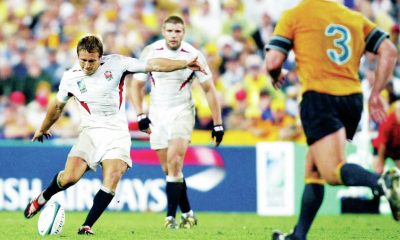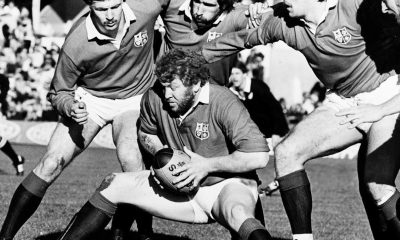

They will man it with hi-tech proficiency and boundless courage of the ‘over-my-dead-body’ kind, qualities which enable them to endure under lengthy siege. They will support it with an aerial game on such a soaring scale that one day it may pose a hazard to low-flying aircraft on the flightpath into Heathrow.
England will know what’s coming their way because Wales are nothing if not predictable. They are, to extend the aviation metaphor, the Ryanair of the Six Nations – no-frills, no risks, safe in the air and about as much fun.
Their devolvement from the stylish Club Class operation of their first Grand Slam of the millennium in 2005 can be measured by a shrivelling number of tries. With their vast experience and glittering collection of Six Nations’ gongs, they ought to be able to translate their authority into another title by succeeding Ireland’s depleted champions instead of an England in the early stages of reinaissance.
If they fail, it will not be difficult to pinpoint why. In their last ten matches against those countries ranked immediately above and below them on the official World Rugby list, Wales have managed eight tries – and that includes the one the hapless French put on a plate for George North last week.
Over the last 16 months, they have scored once against the All Blacks, England, France, Ireland, England again, South Africa, Ireland,again, France again in between drawing blanks against the Springboks in Cardiff and the Wallabies at the World Cup.
Their capacity to surprise, long taken for granted by Welsh supporters as an innate quality of the game that separated Wales from the rest of the Northern Hemisphere, was nowhere to be seen against France. The one recent example came after a reserve scrum-half (Lloyd Williams) had been pressed into emergency service on the left wing where his instinctive intervention rescued Wales from an early World Cup exit and knocked England out instead.
Maybe that ability to do something off the cuff has suffered from over-exposure to the bludgeon. Gareth Davies’ punt to the corner against France instead of a pass to exploit a two-man overlap lends unwitting support for the argument.
Space, squeezed from every direction as never before, is a problem far from peculiar to Wales. In their case, it may explain why they have found more of it in the air than on the ground.
Warren Gatland raised the issue in defence of France before proceeding to beat them. “The reason there’s not so much French flair any more is not because they haven’t got the players but that teams are defensively so organised,” the Wales head coach said. “There’s just no space on the field.”
Well, the All Blacks keep finding acres of the stuff for tries galore. They found enough in the course of retaining their World Cup to score 39 in seven matches and that was on top of another 15 against Australia, South Africa and Argentina in the Rugby Championship.
So much, then, for the argument about fitter and faster players having a shrinking effect on the size of the pitch. While there can be no doubt about that, nobody has told the All Blacks or, if someone has, they have cocked not one deaf ear but two.
Even England, for all their troubles, have out-tried Wales. It may not count for anything this week but, over their last ten Tests against the seven other countries ranked in the top eight, England have scored 22, almost three times more than their neighbours.
Maybe Saturday’s decider will prove the exception to the rule but Wales, of late, win matches on a rock-solid defence as Ireland discovered to their cost this time last year and France last week when they went through 12 minutes worth of phases and Wales saw to it that they got nothing for their trouble.
They also win matches through an abnormally high success ratio off the tee, a standard set by Leigh Halfpenny before Dan Biggar had the nerve to raise it higher still. They do not win matches nowadays by outscoring the opposition on tries.
Against the world’s top eight, that has not happened since the French were last in Cardiff before the other Friday night, a one-sided affair two years ago. They almost did the same to the Springboks last time out at Twickenham, the World Cup quarter-final with the unhappy ending.
England will be wary because they have ample cause to be. Wales, more often than not, get under their skin, a habit that goes back to the first time Gatland and Shaun Edwards transferred their double act from Wasps to Wales eight years ago.
The pair won that day, just as they had won Premiership Grand Finals and a European Cup before then. If they are to succeed again this Saturday, it would make a change if they did so by rediscovering the old panache and a few shafts of space.
































You must be logged in to post a comment Login